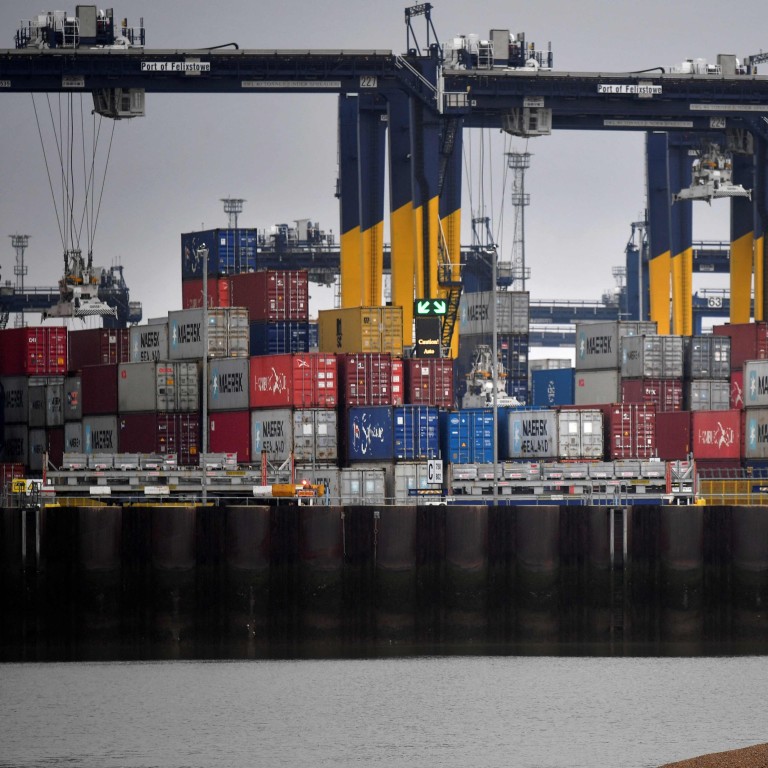
China-UK relations: Beijing plays up trade but says Britain must respect its sovereignty
- In foreign ministers’ call Wang Yi defends China’s policies on Hong Kong and Xinjiang while Dominic Raab raises human rights concerns
- China replaces Germany as Britain’s biggest source of imports, prompting warnings within Britain not to become too dependent on trade with China
In a phone call with British Foreign Secretary Dominic Raab on Thursday, Chinese Foreign Minister Wang Yi said Beijing was open to exchanges with Britain on “sensitive issues”, but said the British government needed to “respect China’s sovereignty and territorial integrity”, according to a read-out from the Chinese foreign ministry.
He called for the two sides to work together on global issues and said trade ties between them had shown their “potential and resilience”, as China became Britain’s largest goods trading partner in the first quarter of the year.
“We look at issues from different perspectives, so it is an objective reality that there are differences between us,” Wang said.
“It is important for us to conduct equal dialogues with the spirit of mutual respect to enhance understanding, remove doubts, clarify facts and to distinguish between right and wrong. ‘Microphone diplomacy’ is not advisable, and engaging in ‘small-circle politics’ is even more inconsistent with the requirements of our time.”
British firms say doubt over data rules ‘inhibiting’ growth in China
“The ministers ended their call agreeing that there are opportunities for the two countries to work together, from trade to tackling biodiversity loss, and said they looked forward to further discussions on these issues,” Britain’s Foreign, Commonwealth and Development Office said.
Britain unveils HK$460 million package to support Hong Kong BN(O) arrivals


